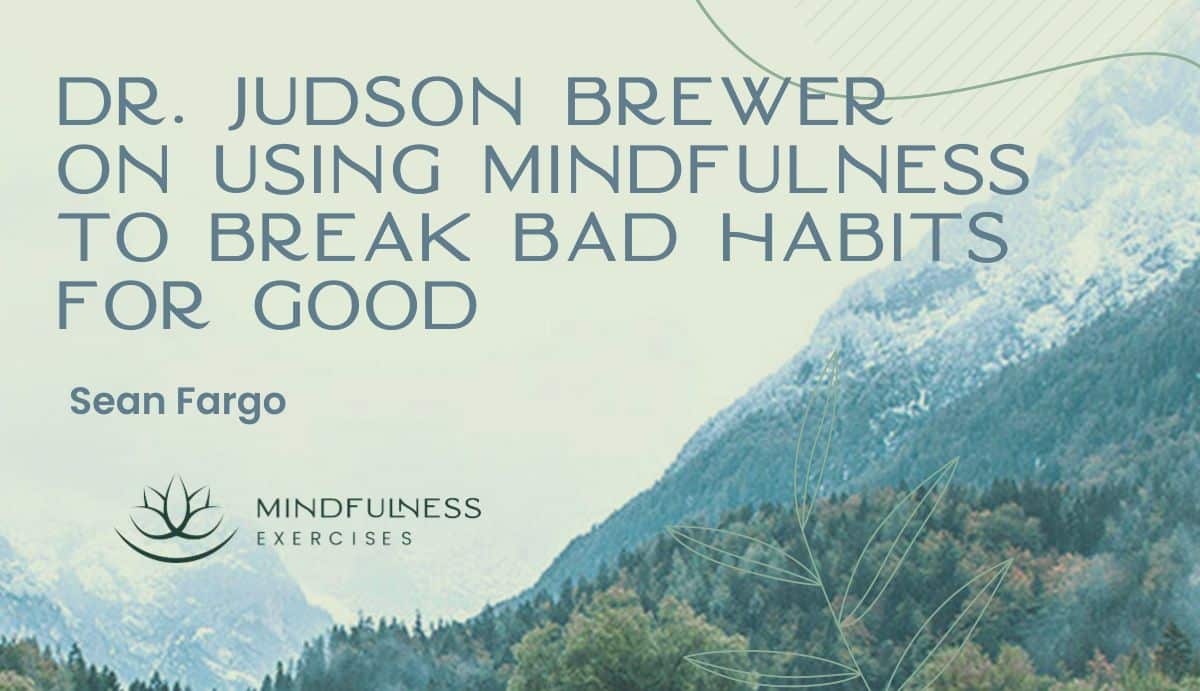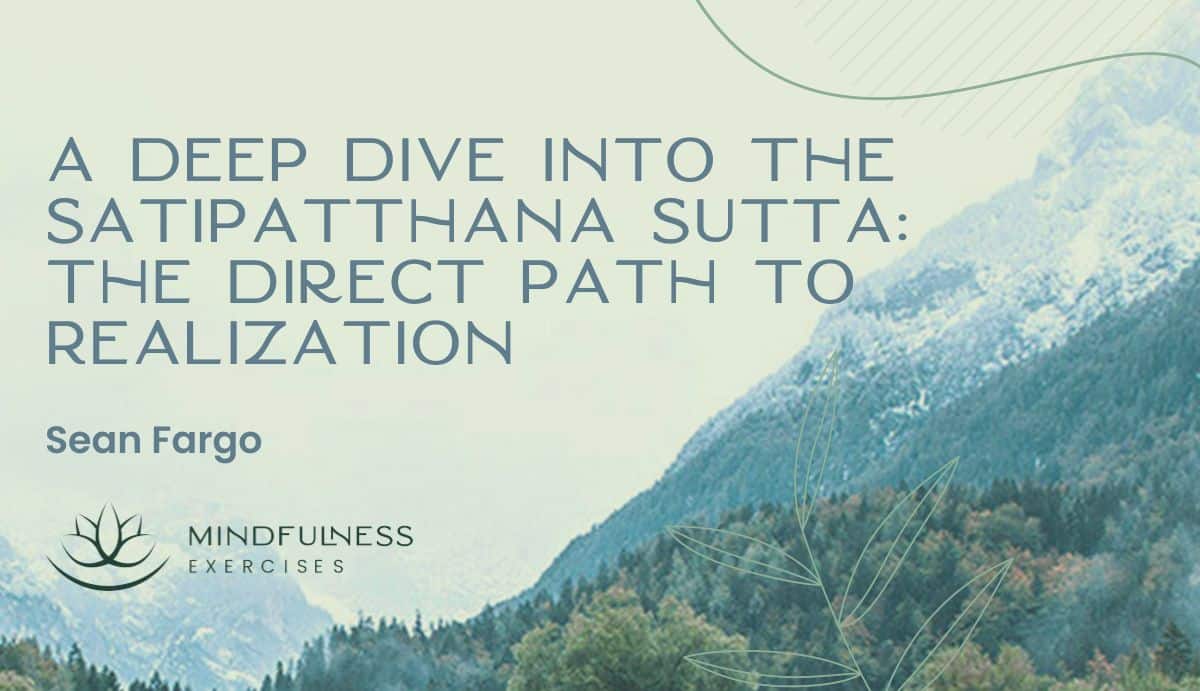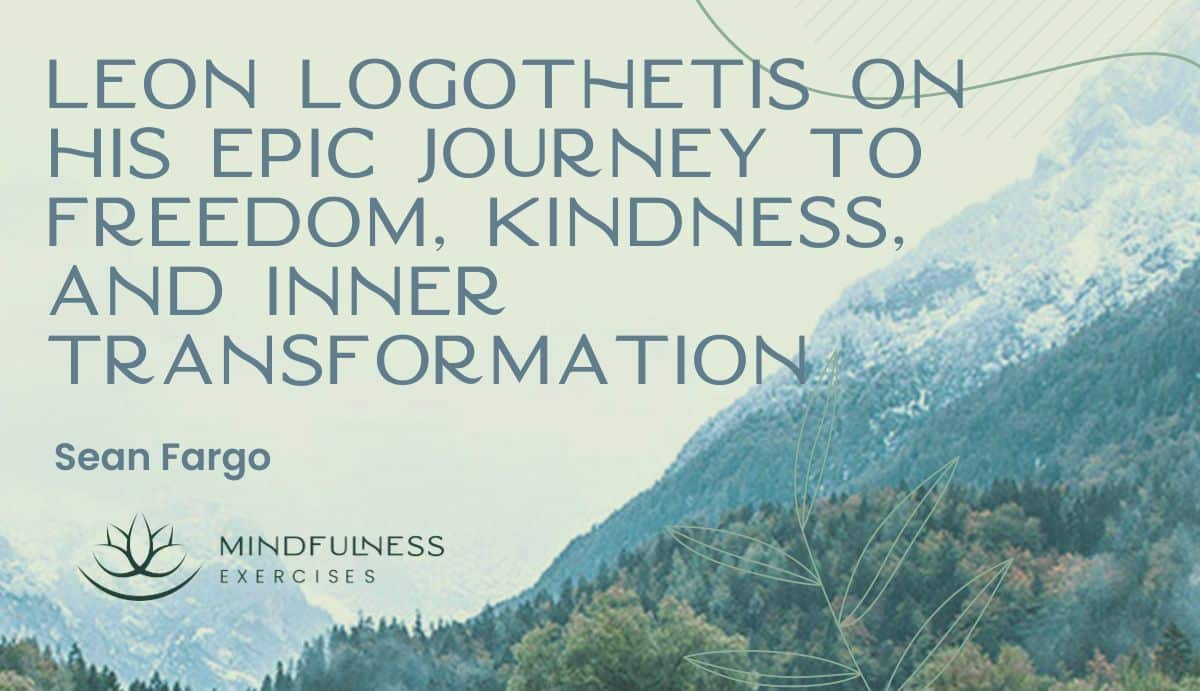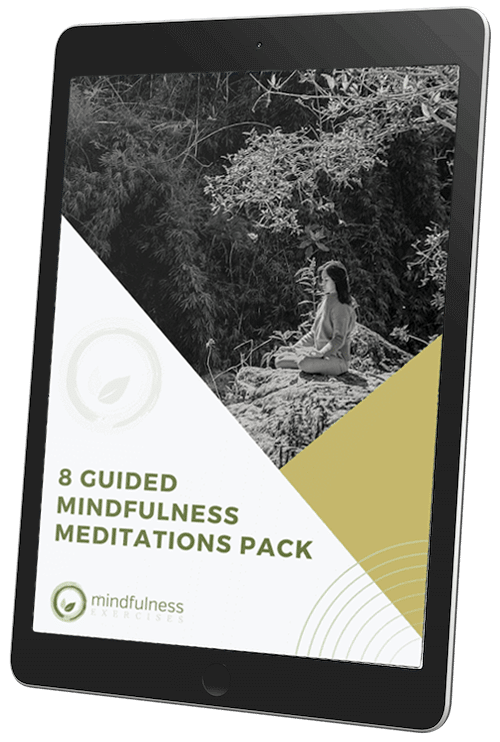Listen now
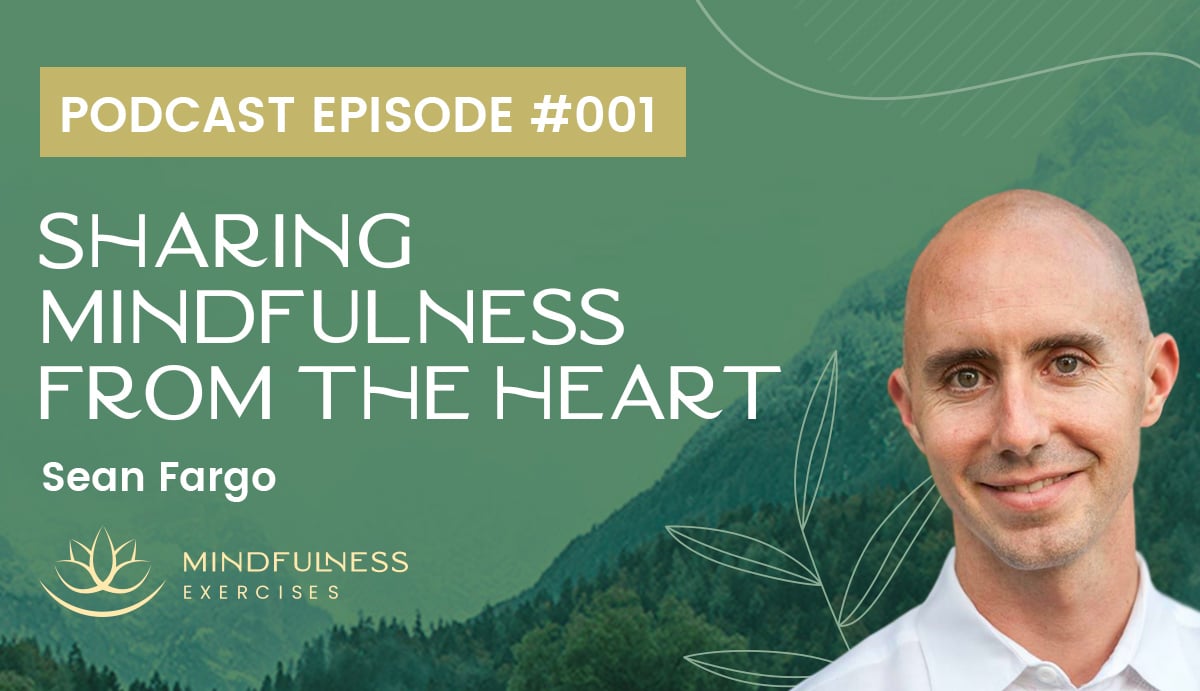
When sharing mindfulness with others, it’s normal to experience fear, nervousness or hesitation.
We might ask ourselves, “Who am I to teach mindfulness to others?”
The collection of human emotions we often refer to as “imposter syndrome” isn’t necessarily bad or wrong. In fact, questioning our ability to help others can be a sign of grace, humility and compassion. Approaching our fears with mindfulness versus judgment can transform them from something to be erased, into something to be embraced.
In this episode, Mindfulness Exercises’ founder Sean Fargo discusses his personal experience with imposter syndrome, and how for him, the solution to teaching with confidence, compassion and courage entailed moving out of his head, and into his heart.
This episode is brought to you by the Mindfulness Meditation Teacher Training Program. Learn more about this unique, online, self-paced certification program at teach.mindfulnessexercises.com
Show Notes:
How Humility Can Serve Us Well
It’s normal for us to hesitate when asked to share mindfulness with others, especially with large groups. But this uncertainty isn’t necessarily a bad thing. In fact, it’s often a sign of care and caution. When we have the utmost respect for the teachings of mindfulness, we naturally want to make sure we’re sharing them with integrity, honesty and authenticity.
“Some degree of reservation and doubt can be a good thing, when there’s a sense of care for the teachings, care for the welfare of those who they may teach in the future, that’s usually a good thing.”
Helping Those With Less Experience
Sean describes the biggest turning point for him, which came to him as a dream, after nearly two years of living with fear of judgment from his teachers and mentors. In his dream, he realized that while he cannot help everyone, he can certainly help some people, and so why not? It’s ok if we’re not at the level of our most revered teachers, we can still help others in meaningful ways.
“People are asking for help. I know enough to help a lot of these people. I can’t help everyone with everything, but I know enough that I can help a lot of people with what they’re asking for help with. Who am I to say no? Who am I to not help them if I can help them?”
“We’re teaching people how to be with their moment to moment experience, and I don’t think you need 10+ years of hardcore in-person training to do that.”
Letting Go of Fear of Judgment
It’s normal, and completely okay, to fear judgment. In fact, this feeling may not ever go away, especially if we find ourselves teaching to large audiences, in new situations, or sharing increasingly challenging practices or teachings. By tending to this fear with mindfulness, however, we can change our perception of it. Underneath this fear is a genuine desire to be an effective helper, and there’s nothing wrong with that.
“It can be very helpful to welcome the fear, to not try to run away from it, or pretend like it’s not there, but to tend to it just as we would tend to anything else with mindfulness.”
“We can also see that we want to teach with integrity, we want to teach with grace, and competency. And so, I think part of that fear for some of us may be tied to that wish to help people. We want to do a good job. We want to be able to lead a great meditation. So we want to honor that too.”
It’s Not About Us
When we’re in a state of fear, we tend to be in our heads and self-focused, concerned with me and mine. By remembering our role as helpers, we drop from the head and into the heart. Our focus shifts from self to others, and this can soften our fear of judgment.
“Remember, it’s not about us, it’s not about me or you, it’s about helping people. It’s about helping them with their struggles and their challenges and inviting them to be able to practice this for their own benefit.”
“That comes from the heart, and a lot of the fear usually tends to be a little head-based. So if we can drop into the heart and remember why we’re doing this, out of a sense of compassion, that can help diffuse some of the worry, too.”
Keeping it Simple
As teachers, we can sometimes become overwhelmed by mistakenly thinking we must “fix” others. Simplifying our role can ease our nervousness. We’re not here to tell anyone what to do or think, but to offer practices that allow them to think for themselves, to merely plant seeds. Those seeds will grow when the conditions are right and our students are ready.
“If I come into this thinking, ‘Oh I really hope all of them like it and that it’s life transformative and life changing,’ I’d probably trip over my words, feel contracted, feel a lot of fear. ‘What are they going to think of this? What are they going to think of me?’...I’d feel paralyzed.”
“It’s an offering. Some of you might like it, some of you won’t. I’ll continue to offer more tools in the hopes that it’s helpful.”
The Primary Foundation
Sean’s own journey as a teacher began with intensive personal practice. Meditating consistently and spending time on retreat was instrumental in building his foundation. While this was not the only thing that prepared him to teach, he credits his personal practice as the source of his authenticity. Daily meditation keeps him in the heart space, and reminds him why he wants to share mindfulness with others.
“The main thing is to keep practicing as a practitioner, try retreats. And you know, maybe practicing with some of these ingredients that I mentioned, but trying to remove the ‘should’ a little bit more. And sensing into the heart of it, which is helping people. Because that will help the whole experience be a little more smooth, and genuine, and also will remind you, ‘why am I doing this,’ which is always helpful.”
“We’re all trying to pay it forward - we’ve been deeply touched by this practice and so I think we just naturally want to share it with others. And so, hopefully we’re all creating those ripples. And you never know who’s going to be touched by this or impacted. I think it takes some degree of faith that things will ripen at the right time and that ripple will carry out. That ripple effect is real.”
Resources

About Sean Fargo
Sean Fargo is a former Buddhist monk, the founder of Mindfulness Exercises, and the lead instructor for the online platform’s Mindfulness Meditation Teacher Training Program. This episode of the Mindfulness Exercises Podcast is an excerpt from a talk he gave to his mindfulness teacher trainees.
As a teacher at Spirit Rock Meditation Center, Sean has worked alongside mindfulness pioneers such as Jack Kornfield, Tara Brach, and Sharon Salzberg. He has taught mindfulness and meditation for national corporations, health and government organizations, and prisons and hospitals around the world.
MindfulnessExercises.com has shared mindfulness with over 6 million people via free and premium services including downloadable meditations, guided meditation scripts, mindfulness worksheets, courses, content and live online retreats.

